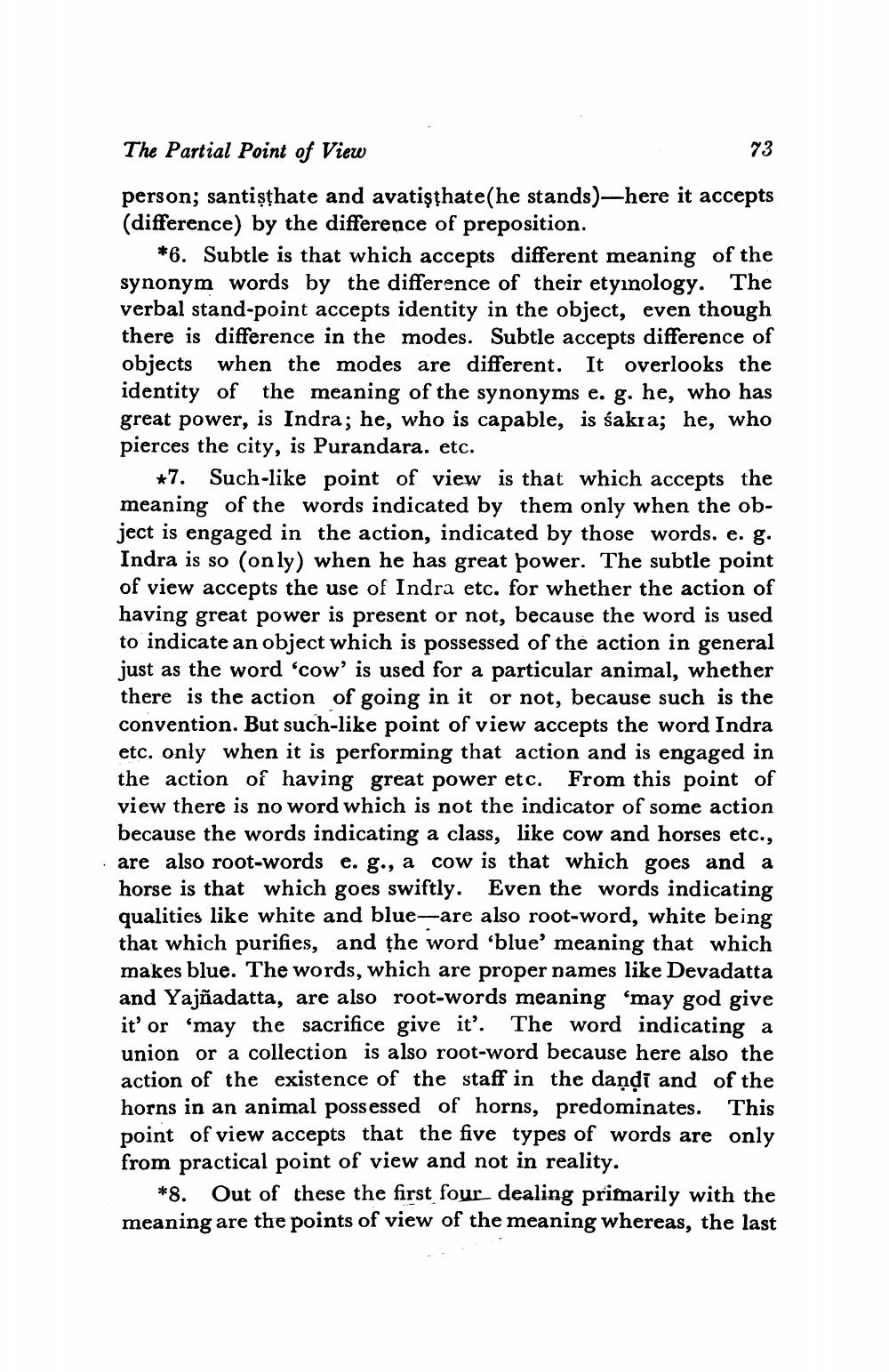________________
The Partial Point of View
73 person; santişthate and avatişthate(he stands)—here it accepts (difference) by the difference of preposition.
*6. Subtle is that which accepts different meaning of the synonym words by the difference of their etyinology. The verbal stand-point accepts identity in the object, even though there is difference in the modes. Subtle accepts difference of objects when the modes are different. It overlooks the identity of the meaning of the synonyms e. g. he, who has great power, is Indra; he, who is capable, is śakıa; he, who pierces the city, is Purandara. etc.
*7. Such-like point of view is that which accepts the meaning of the words indicated by them only when the object is engaged in the action, indicated by those words. e. g. Indra is so (only) when he has great power. The subtle point of view accepts the use of Indra etc. for whether the action of having great power is present or not, because the word is used to indicate an object which is possessed of the action in general just as the word 'cow' is used for a particular animal, whether there is the action of going in it or not, because such is the convention. But such-like point of view accepts the word Indra etc. only when it is performing that action and is engaged in the action of having great power etc. From this point of view there is no word which is not the indicator of some action because the words indicating a class, like cow and horses etc., are also root-words e. g., a cow is that which goes and a horse is that which goes swiftly. Even the words indicating qualities like white and blue--are also root-word, white being that which purifies, and the word 'blue' meaning that which makes blue. The words, which are proper names like Devadatta and Yajñadatta, are also root-words meaning 'may god give it' or 'may the sacrifice give it. The word indicating a union or a collection is also root-word because here also the action of the existence of the staff in the dandi and of the horns in an animal possessed of horns, predominates. This point of view accepts that the five types of words are only from practical point of view and not in reality.
*8. Out of these the first four dealing primarily with the meaning are the points of view of the meaning whereas, the last




